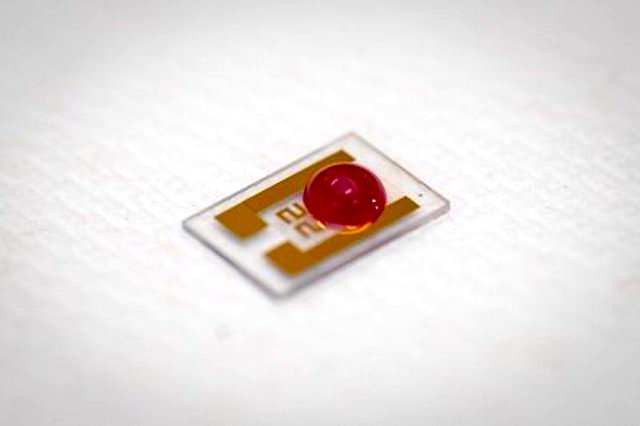
In a new study, researchers have developed a chip that can easily identify detect early-stage tumors, predict the course of cancer, and monitor the effects of therapy.
The chip is made of carbon nanotubes. It can detect circulating tumor cells (CTCs) of all sizes and types and can do so with far greater sensitivity than existing technologies.
The research was conducted by a team from Worcester Polytechnic Institute (WPI) and other institutes.
Undetected tumors can grow strongly and travel through the bloodstream and initiate new tumors in other organs.
Scientists have long sought a method that can reliably detect tumor cells as they travel through the bloodstream.
Such technology could make it possible to detect cancers at very early stages when treatment is more likely to be successful.
But isolating CTCs with high purity is a big challenge. These cells comprise as few as one to 10 cells among a billion blood cells.
Previous research has created so-called liquid biopsy devices, but the devices currently available have lots of limitations, including low sensitivity; the inability to detect CTCs of all sizes and types, and high costs.
In the new study, the team’s new device has none of these limitations.
The centerpiece of the device is a layer of carbon nanotubes that lines the bottom of a small well-formed in a silicon/glass wafer.
The materials and batch fabrication techniques are similar to those used to make semiconductors.
The chip design takes advantage of a natural tendency of CTCs to attach.
Tests of the chip using blood spiked with a known number of cancer cells showed that it has a high sensitivity, with between 89 and 100% of cancer cells in the test samples being captured.
Tests were also run with blood samples from actual breast cancer patients (stages 1–4) and yielded 100% sensitivity for detecting cancer cells.
Cancer cells were captured from all seven patient samples, while no tumor cells were captured from the samples from two healthy patients.
The tests also showed that the carbon nanotube chip can capture cells regardless of their size and can also capture clusters of cancer cells in addition to individual cells.
The team believes the latest generation of the chip is ready for clinical trials.
They are working with StrandSmart Inc., a Silicon-Valley start-up led by CEO Adrianna Davies.
The leader of the study is Balaji Panchapakesan, professor of mechanical engineering at WPI.
The study is published in the journal Lab on a Chip.
Copyright © 2019 Knowridge Science Report. All rights reserved.



